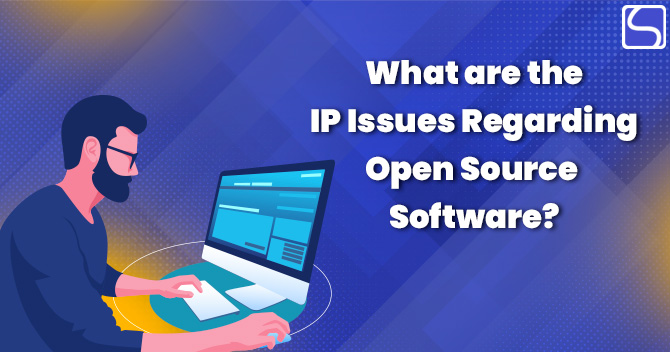A Complete Analysis of Intellectual Property Audit

Karan Singh | Updated: Dec 21, 2021 | Category: IPR
An Intellectual Property Audit or IP Audit refers to the collation, examination, and systematic collection of all the Intellectual Property Assets owned, assigned, acquired, licensed, used, or unused. Hence, it can be compared to a comprehensive inventory, which permits an enterprise to examine and keep track of its assets. An Intellectual Property Audit aids in recognising threats to the Intellectual Property (IP) Assets and aids the businesses in developing strategies to promote their growth & competitive standing in the marketplace. Since an IP Audit checks all the IP Assets & the policies linked with the same, it aids in recognising and examining an IP Infringement. Scroll down to check more information regarding Intellectual Property Audit.
Table of Contents
Different Types of Intellectual Property Audits
Following are the different types of Intellectual Property Audits:
- Event-Driven IP Audit: This type of Intellectual Property Audit seeks to locate IP assets and then assess the value & risks involved. It is conducted during an IP Licensing, IP transfer, when launching a new product or when the risk or value has to be estimated in a proposed Intellectual Property Acquisition or Sale. In all such conditions, while such an Audit may be conducted to assess infringement, it may also, in the case of an Intellectual Property transfer or Merger/Acquisition, lead to an increase in the value of the attained company or license fee or to a reduction in the value of the acquired company or license fee or to a decrease in the value of the same depending on the level of risks and Intellectual Property (IP) issues involved.
- General IP Audit: It’s an audit that is conducted when a new company is being established, or when a business is regarding implementing new policies or considering a new marketing approach, etc. It is done with the intent of getting a general idea regarding the assets under or with the business.
- Limited–Purpose IP Audit: This is usually done when there are vital changes in Intellectual Property Laws and procedures; when a business or enterprise decides to have an online presence, an Intellectual Property Audit aids in identifying the requirements of e-commerce. This IP Audit may also be conducted during procedures to make sure that no unrelated party has access to Copyrighted materials during the software development to examine the sufficiency and requirement of such a procedure. It may also be carried out before a company decides to begin its Intellectual Property filing procedure across various jurisdictions.
Conducting Intellectual Property Audit
An Intellectual Property Audit is carried out in several instances. For instance, when a company is acquiring an IP company, when a company is selling its Intellectual Property Assets, when it desires to conduct a valuation of the assets, when a company wants to develop methodical guidelines to safeguard the Intellectual Property[1] Asset or when the business wants to check if its asset is being violated, etc., it conducts an Intellectual Property Audit. Whatever may be the purpose, it’s vital to remember, as it is this purpose that decides the type of IP Audit that is going to be conducted.
How is an Intellectual Property Audit carried out?
- To make sure that an IP Audit addresses the customer’s or business’s purpose in a pointed and directed way, it is first vital to define the objective & scope of the Audit.
- After specifying the ambit of the IP Audit, the next step is to assign an Audit Team. While in most instances, an Audit Team includes lawyers, it is also vital to engage members who are accomplished with the technical aspects of an Intellectual Property or those who manage the Intellectual Property. The reason behind this is to make sure that the team conducting the Audit has an extensive and detailed understanding of the facts and issues involved. Since any communication between a customer & legal counsel is privileged, but any communication between other members may not be secret, it is vital to make sure the Non-Disclosure Agreements are entered into such members.
- After that, the next step is to create an IP register for the examination; this would help while collecting details. At this step, it’s vital to know the documents that should be examined and the people that need to be interviewed. After this is done, an Audit Plan should be drafted, which would comprise the area, i.e., projects or businesses that need to be examined or reviewed; the scope & schedule of the Audit; and the division of accountability amongst the team.
- Once this stage is done, then the next resultant stage is to collect details. The details collected could comprise license contracts; Research & Development Agreements, the nature of the IP Assets and their international filings or registrations; litigation history; IP strategy documents concerning Intellectual Property; the list is endless.
- A step that is generally undertaken at the initial of the Intellectual Property Audit or during the information collecting stage is to interact with the business employees through questionnaires. The questionnaire’s reply permits the Audit Team to know the scope of the Audit, assets’ nature, the internal procedure followed during acquiring/creating/safeguarding IP Assets.
- Examining the information collected is one of the vital aspects of an Intellectual Property Audit. The review can be of the IP procedure. The review can also be of the agreements that the company has entered into or is about to enter, review of the documents that include a registration record of the IP, etc.
- The last step is to draft the Intellectual property Register, which would consist of the register of intangible assets, the register of related observations and the register of consultations. Hence, the register of IP will estimate the defects in the Intellectual Property, enlighten the risks involved in the Intellectual Property, and any other weakness involved.
- The Audit Team shall then draft an Intellectual Property Audit that will identify everything related to the concerned Intellectual Property, commencing from its Acquisition or Creation date, any license agreements linked with it, and whether it has been transferred or registered. It also states remedial action that has been taken or that needs to be taken.
Conclusion
It is concluded that with the sudden increase in IP, the requirement of protection & review the same also increases. Big businesses which are involved in the Acquisition/Creation/Transfer of Intellectual Property continually struggle with ensuring that an inventory of the same is maintained. An Intellectual Property Audit does not list out the IP Assets of the company only, but it also ensures that the company’s assets don’t violate any 3rd party rights or no 3rd party violates upon the rights linked with the asset by ensuring that proper agreement/license agreements are entered to.
Read our Article:How Can You Conduct an IP Due Diligence? – An Overview














